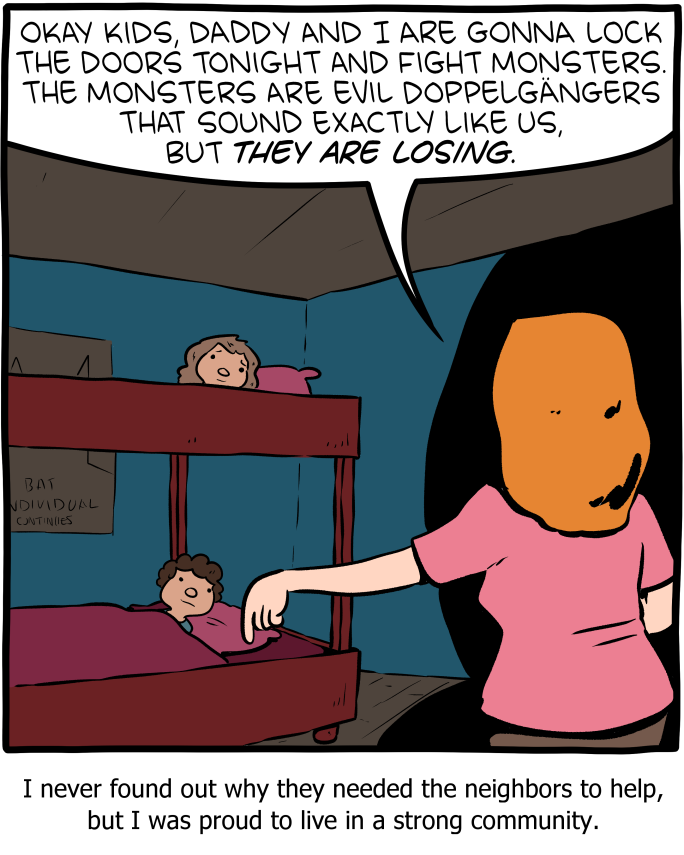A mashup of two songs. I Like Me Better - Lauv and You Body Is A Wonderland - John Mayer.
Subscribe and like for more of this content! Head to our website to listen and download for free.
A mashup of two songs. I Like Me Better - Lauv and You Body Is A Wonderland - John Mayer.
Subscribe and like for more of this content! Head to our website to listen and download for free.

Hovertext:
Still don't know why they kept asking their ghostly duplicates whether they liked that over and over.
The Project Hail Mary movie comes out soon but you should read the book first - trust me, it’s worth it!